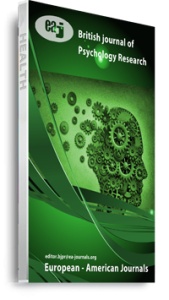Although studies confirm the relationship between vocabulary knowledge and working memory, the field remains open to questions about the qualitative nature of this relationship. So does language ability in its intermediate range contribute to relatively early developmental changes and changes in working memory, or does the necessary amount of language ability for this contribution exceed the middle limit? Objective: The current study aims to follow up the development of working memory in early childhood and examine the role of vocabulary knowledge in developing working memory among Egyptian children. Materials and Methods: One hundred Egyptian children of pre-school age(50 girls and 50 boys) aged between 3.5-5.5 years (Mean = 4.72, S.D =0.82). The children completed The Working Memory test (AWMA) vocabulary knowledge test (PPVT-R) of the Arabic language. Results: The current study indicated that working memory develops with age, and that vocabulary knowledge plays an important role in developing working memory, especially the phonological-verbal component.
Keywords: Early Childhood, Egyptian children, vocabulary knowledge, working memory

